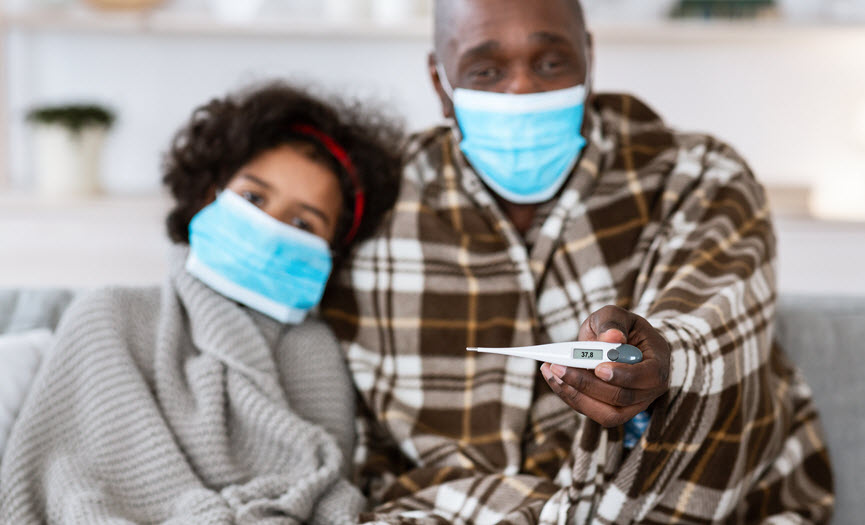
COVID-19: Protecting Children and Families During This Time of Crisis
There are still many unknowns about the exact trajectory of the COVID-19 pandemic—in terms of lives lost, and the overall social and economic impact. One thing is certain: that this unprecedented event will affect us all, and especially children and families in under-resourced communities who face the brunt of the societal and economic shutdown. We welcome the growing focus on health justice as the necessary framework to get us through this crisis.
Not only are many families worried about how to pay rent or buy food, but the public programs that they rely on have been either shut down for “social distancing,” or are struggling to manage surging demand. We commend our community partners who are working tirelessly to meet the needs of families in Philadelphia and across the country.
The economic relief package passing through the U.S. Congress this week should help to meet the most pressing needs for goods and resources. However, the ongoing and concurrent impacts of social distancing, disease and death in families, and the strain on our public systems are not solely economic in nature.
Here we detail several issues we’ve been following that are of particular concern for families. The list is certainly not exhaustive. Together with PolicyLab colleagues and community partners, we will be digging in deeper on these and other issues as the pandemic, and the response to it, develops.
CHILD WELFARE
Thee impact off the COVID-19 pandemic on children in the child welfare system and those in families vulnerable to child abuse and neglect cannot be understated.. For children in care, of which there are more than 4,500 in Philadelphia, the ripple effects of social distancing policies on caseworker visits, parental visits, and court hearings may affect all child welfare processes, including the preservation of child safety and reunifications with biological parents.
For children in families vulnerable to domestic violence, caregiver substance use or mental health challenges, the stress of the pandemic and the need to shelter in place may be a tipping point.
Reports of increased emergency department visits for abusive injuries to children and women have sadly already begun. With children spending more time at home away from the supervision of teachers, coaches, extended family members, and physicians, there are fewer opportunities to identify maltreatment.
Compared to the general child population, youth in foster care also have higher rates of asthma, metabolic conditions, and other health conditions, including cognitive and mobility impairments. While children overall seem to be more resilient to the virus, these conditions may make youth in care more susceptible to COVID-19 complications.
MATERNAL AND CHILD HOME VISITING
Evidence-based home visiting programs, which serve 16,000 children annually in Pennsylvania, have halted in-person visits due to the pandemic. Home visitors provide pregnant or parenting caregivers of young children in under-resourced communities positive social support, encouragement and stress-coping guidance, and facilitate connections to community resources in response to urgent family needs.
In this time of crisis, this social support is even more important, particularly to address isolation in rural communities. While home visiting agencies have demonstrated a commitment and flexibility to continue services virtually during the pandemic,, there are significant complexities to this approach.
The logistics of managing “e-visit” documentation and reimbursement are burdensome for community agencies. For caregivers, internet access and inadequate phone plan coverage may also limit this type of approach. While internet providers are making resources available, the technological literacy needed to acquire and successfully use these services may still be a barrier for families.
More fundamentally, the success of the home visiting approach is built upon the intimacy of social connection in the home, and the loss of this intimacy is likely to be felt acutely by home visitors and families alike.
GRANDPARENTS AS CAREGIVERS
Grandparents play a critically important care giving and social support role in many families. There are an increasing number of children in kinship caregiving arrangements with grandparents, and many more families in which parents with untraditional or irregular work schedules rely on grandparents for childcare needs.
However, many grandparents are squarely in the demographic most at risk for morbidity associated with COVID-19. As we work towards a potentially more targeted social distancing policies that will reopen society, we should not lose sight of the foundational role grandparents serve in preserving the well-being of children and the economic security of many families.
FOOD SECURITY
As schools have closed, there has been a great deal of attention, including here in Philadelphia, on ensuring continued access to free meals provided to low-income children.
However, outside of children’s circles there has been much less attention paid to the Supplemental Nutrition Assistance Program (SNAP) and Women, Infants, and Children (WIC) programs that are vital to low-income families, and how they will cope and respond to swelling demand.
The Families First Coronavirus Response Act, signed into law on March 18, commits funding for SNAP and also lifts work and work training requirements during the time of the official public health emergency. The larger question is how quickly the programs can reach and enroll new beneficiaries and, given the trouble grocery stores are having keeping their shelves stocked, meet the needs of individuals who rely on SNAP and WIC. In Philadelphia, we’ve heard of specific problems with access to baby formula and other essential supplies that are WIC-eligible but out of stock. It remains to be seen how nimble the program can be to allow for substitutions or alternative methods of distribution to support these low-income families.
CHILDREN’S HEALTH INSURANCE COVERAGE
Given the economic impact of the pandemic, and the staggering increase in unemployment, the demands on Medicaid and the Children’s Health Insurance Program CHIP) will greatly increase in the months ahead.
The Families First Coronavirus Response Act was a welcome step towards ensuring Medicaid and CHIP are protected during this time. Of particular interest to us is the unintentional, but beneficial, support these moves may provide to eliminating the postpartum Medicaid cliff, whereby women lose Medicaid coverage 60 days after delivery in many states, including Pennsylvania.
The Act also importantly removes utilization of public health programs during this period from consideration for the “public charge” rule, although continued uncertainty around the rule will still likely keep many non-citizen immigrant families from accessing health care when they need it.
LOOKING AHEAD
These are only some of the issues that are top of mind for us related to protecting the health and well-being of children and families during this time of crisis. We are also monitoring:
- Rising health equity concerns related to access to telemedicine, including language translation services.. Ensuring continued access to primary, subspecialty, and mental healthcare through telemedicine is an opportunity for health system innovation, but one that we should approach with a sensitivity towards technological literacy and language access.
- Whether childcare centers can survive closures. Childcare centers serve a fundamental role within communities in ensuring the safety, socialization, and education of young children. The National Association for the Education of Young Children’s recent survey revealed that only 30% of childcare programs felt they could survive a closure of more than two weeks without significant public investment.
- The mental health needs of children, adolescents and caregivers. In this anxious and uncertain time, with youth away from the school and community programs that may address some of their mental health needs, and caregivers disconnected from social networks, it is particularly important to monitor and address the mental health effects of the pandemic. For new mothers in particular, the pre-pandemic scarcity of postpartum depression and anxiety treatment is likely to be exacerbated in this time.
The road ahead will be complicated and difficult, as policymakers grapple with trade-offs between risks associated with exposure to the coronavirus and inequities in the economic impact of the current crisis.
Written by Meredith Matone, DrPH, MHS and Rebecka Rosenquist, MSc
[This post originally appeared on Children’s Hospital of Philadelphia Policy Lab on March 27, 2020]
